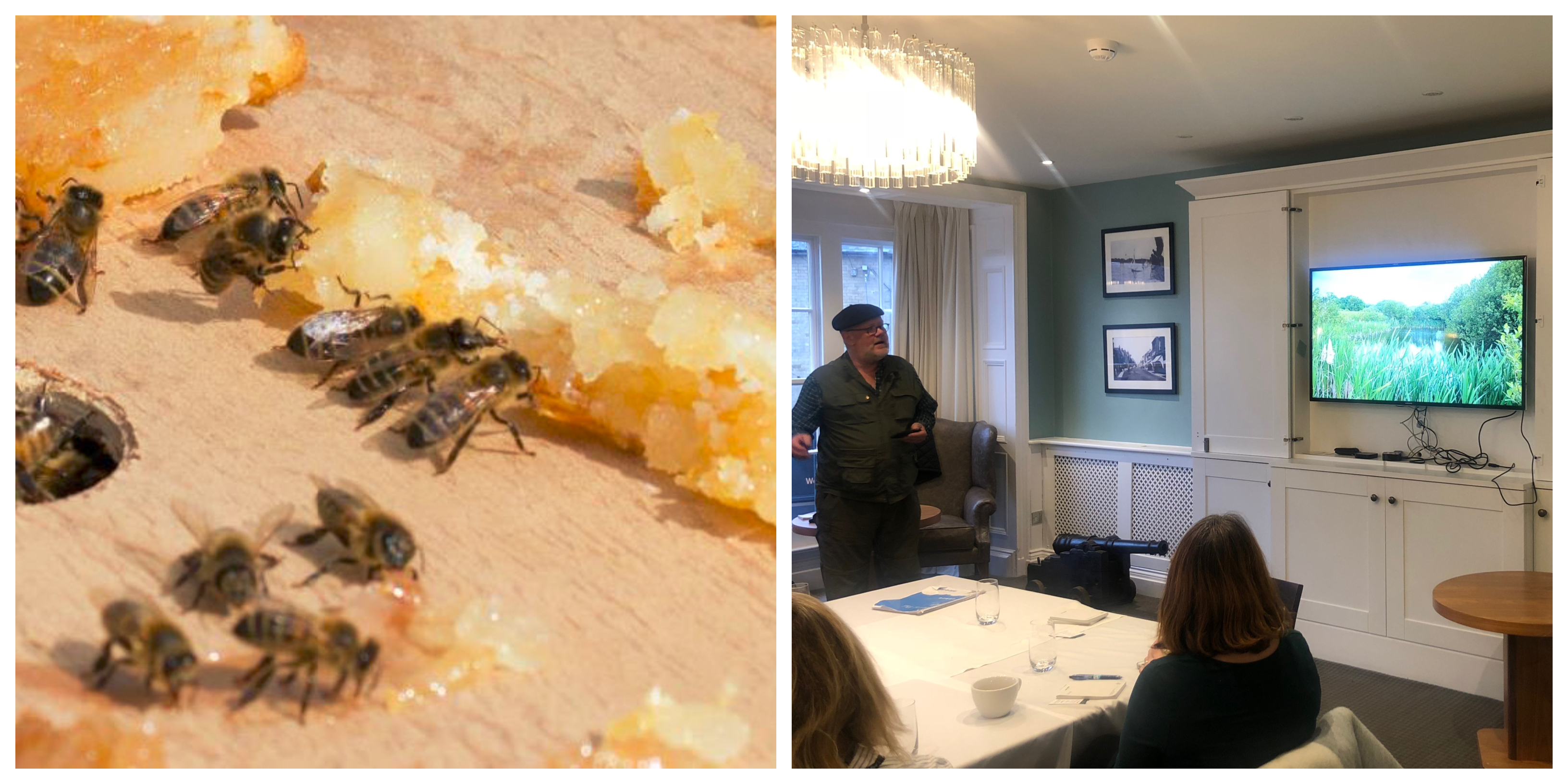Practitioners from Forestry Commission, Field Studies Council, Historic Royal Palaces, Suffolk Council, National Trust and Ashden were treated to a brewery tour with a difference to see how carbon, waste, water and biodiversity are all being targeted as part of Adnams' sustainability strategy.
The Beginning of the Story
Adnams head of Finance and Sustainability, Richard Carter, introduced environmental sustainability at Adnams, why it makes business sense, the moral imperative and the urgent need to adapt due to a changing climate.
More than £30k a year is already being saved at Adnams' eco-distribution centre thanks to walls built from 90,000 local hemp and lime blocks to increase insulation, and a rainwater collection system saves 1 million litres of water per year. The eco distribution centre, energy efficient brewery and anaerobic digester, which diverts 12,500 tonnes of food waste from landfill every year, are only the beginning of Adnams' sustainability story...

Collaborating through Fit for the Future
Richard explained how a Fit for the Future visit to National Trust in Wales directly inspired a project that has led to the creation of an innovative closed loop system in the distillery which saves 90% of the cooling water and has led to a 15% reduction in energy use. Watch the video and read more about the collaboration and resulting project.
Brewing Innovations
Members get the inside scoop of the brewing process at Adnams' energy efficient brewery, where more than 90% of the steam produced is captured and reused for heating. There has been a 26% carbon reduction at the brewery since 2006/7 by reducing gas use on site, and water is reused to significantly reduce the water to beer brewing ratio.


Bees and Biodiversity
Adnams bee keeper, Steve, introduced members to the 500,000 honeybees that reside at the distribution centre site, with on-site breeding to help develop resilience of the bee population. Honey produced is served in local Adnams' hotels. As well as bees, Adnams nurture biodiversity with wild flower planting around their distribution centre. The Raydon site also provides habitat for sandmartis, newts, barn owls and two nationally scarce species of flora.

You can read more about Adnams' sustainability story here, and access the presentations from the day in our members' area. We're planning more site visits like this in 2019 for members to see successful sustainability projects in action. Keep an eye on the events page for the 2019 programme.